Stay in the know on all smart updates of your favorite topics.
The Supportclub

Our idea: The Supportclub, let’s look after someone, as a team
The Supportclub makes volunteering for another person fun and easy to do. Our app carefully designs teams around a person in need, based on skills and fields of interests. Our network partners invites people that need a little help or company, informal care to make a profile as a supportee. Our campaign recruits people that want to help somebody, the supporters. They also make a profile.
The Supportclub app matches supporters based on their interests and skills. The app creates (temporary) teams around a supportee, e.g. Annie → Support team Annie. The Supportclub facilitates the teams to work together for Annie providing handy features like notification, a calendar, chat and monthly meet-up for the team.
The Supportclub proposition for supporters:
- look after a person that needs some help (18+)
- in a carefully designed team
- for a fixed period of time
- with social team activities
- facilitated by an app
Join the Supportclub!
The Support club proposition for supportees:
- Do you need some help or company?
- Register yourself at The Support Club and get a team. Three to five people that are willing to look after you. They do it together and make new friends while doing it.
- You let us know what your needs are and we do the rest.
Join the Supportclub!
Shuttercams for a responsible smart city

Shuttercam is a project by Responsible Sensing Lab (RSL), a collaboration between the City of Amsterdam and AMS Institute. In essence, RSL is a testbed for conducting research and experiments on how smart sensing technologies in public space – like cameras – can be designed in a way that makes the digital city 'responsible’.
At the Lab we invite academics and practitioners responsible for digital systems in the city to explore how to integrate social values such as autonomy, privacy and transparency in the design of these sensing systems in public space.
How to know when a camera ‘sees’ you?
The Shuttercam project originated based on the notion that citizens currently can not directly know or see if and when cameras in public space are monitoring you or not. The project also questions the necessity for many non-security related cameras in the city to be switched on indefinitely.
Experimenting with 3 prototypes at Marineterrein
The Shuttercam project will test 3 prototypes. These are installed at Marineterrein Amsterdam Living Lab (MALL) in the upcoming weeks.
First and foremost, the cameras within this project are all part of the crowd monitoring system by the City of Amsterdam, which is a privacy friendly system. So what do these cameras record or see for example?
A crowd monitoring system works with a camera that has an algorithm read out and analyzes video images. In addition to measuring crowds and displaying those crowds in usable numbers, the algorithm can also determine whether people keep a distance of 1.5 meters. All this is done in an anonymous manner that naturally complies with all privacy legislation.
The video images are not watched by a human but are processed automatically. Only a few frames are saved with unrecognizable, blurred people's faces. Those frames help to "train" the algorithm. Furthermore, the images are not saved. Continue reading about the the Shuttercam project >>
Responsible Sensing Lab

Smart city systems can help solve urban challenges. But when collecting data, what public values are involved? The Responsible Sensing Lab explores how to integrate social values such as autonomy, privacy, transparency, inclusiveness and empowerment in the design of sensing systems in public space.
In January 2021 the Responsible Sensing Lab was officially launched during an interactive livestream event. In essence the Lab is a testbed for conducting rigorous, transparent, and replicable research on how our smart technologies placed in public space can be designed in a way that makes the smart city ‘responsible’. Responsible Sensing Lab is a collaboration between the City of Amsterdam and AMS Institute.
A lab for a ‘responsible’ smart city
The City of Amsterdam has many smart technologies in place: from smart devices that measure things (i.e. sensors) to smart devices that steer processes in the city (i.e. actuators) such as traffic lights, charging stations, adaptable street lights, barriers that go up and down, and adaptive digital signs.
At the Responsible Sensing Lab we research, develop and integrate smart technologies like the aforementioned to help solve urban challenges. At the same time, we explore how to embed society’s public and democratic values in the design of these innovations.
(Re)designing, prototype testing and implementing responsible sensing systems
Within the Lab academics are invited to connect and work with practitioners who are responsible for digital systems in the city to (re)design, prototype and test (more) responsible ways of sensing in public space.
Hence, Responsible Sensing Lab is a place where teams of multi-disciplinary stakeholders – such as computer scientists, policy makers, psychologists, designers and hardware experts – can address existing hardware, software and other city sensing systems.
Core values
At the Responsible Sensing Lab, we use the City’s values (TADA, Digital City Agenda) as our starting point. We explore what these values mean when applied to actual software, hardware, user-experience design and governance.
Also, we are inspired by the methodology of value sensitive design. This approach allows us to focus on design choices inherent in the type of sensing hardware, the distribution of intelligence between cloud and back-end, the physical design and placement of sensors in public space, and interaction possibilities for citizens.
Do you want to know more or are you looking to collaborate? Contact us via our website!
Wicked Problems
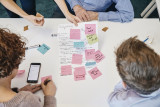
Te wicked? Niet voor ons.
Wij werken allemaal aan urgente, complexe, maatschappelijke uitdagingen. Issues die schier onoplosbaar lijken, van dilemma’s en paradoxen omgeven, nog niet duidelijk hoe het moet. Wel is duidelijk dát het moet, dat we elkaar nodig
hebben en dat we er NU aan moeten beginnen. Om met de woorden van Jan Rotmans te spreken; we leven niet in een tijdperk van verandering maar in een verandering van tijdperk. En hier hoort een nieuwe gereedschapskist bij.
En of je nou aan energietransitie werkt, andere mobiliteitssystemen, creëren van waterstofhubs, peer to peer autodeelsystemen, het maakt niet uit, we zien dat al deze opgaven op enig moment tegen gelijksoortige barrières aanlopen. Op samenwerking, financiering, privacy, onvoldoende aansluiting op de maatschappij, om maar een paar voorbeelden te noemen.
Unieke samenwerking
Als Amsterdam Smart City netwerk willen en kunnen we deze opgaven niet laten liggen. Door het bundelen van onze kennis en expertise kunnen we als netwerk iets unieks bieden en de wil en durf tonen om deze barrières te doorbreken. De betrokken partners die dit uitdenken en begeleiden zijn RHDHV, Kennisland, Drift, NEMO, Arcadis, Alliander, HvA en Metabolic. Zij bundelen hun expertise en ervaring om de echte vragen boven tafel te krijgen, tot nieuwe manieren van samenwerken te komen en barrières te doorbreken. We richten ons met name op de start van de samenwerking. Gezamenlijk ontwikkelen we een ‘wicked problem aanpak’. Op een nieuwe manier, lerend door te doen, exploratief.
Waar moet je aan denken?
Wat is eigenlijk het echte probleem? Wiens probleem is dit? Hoe kijken anderen er tegenaan? Welke andere partijen lijken nodig? Hoe vind je ze? Hoe ga je om met eigenaarschap en botsende frames? Hoe zorg je dat je al in
een vroeg stadium de maatschappij (bewoners, ondernemers, werknemers, etc) betrekt en hun ervaringen in het project trekt? Het wicked problem team zet nieuwe methoden in voor het beantwoorden van deze vragen. En het creëren van de benodigde commitment om het vraagstuk aan te pakken. Niets staat van te voren vast, want we passen ons aan aan wat we tegenkomen. Met elkaar ontwikkelen we een nieuwe aanpak om de barrières te doorbreken.
Blue Force Tracking
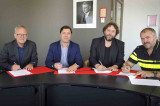
Testing medical certified body sensors to detect unexpected behaviour, triggering an alert, which allows the command & control room to act and better support their fellow officers in the field.
[►
Blue Force Tracking - Nalta Experience #1
How to improve the protection and safety of the Dutch Blue Force using smart Technology?
Nalta built a new innovative Internet of Things solution solving just that. In partnership with the Netherlands Police, the municipality of Amsterdam, Johan Cruijff Arena, Dell Technologies and Dell Boomi we cre
Nalta YouTube](https://www.youtube.com/watch?v=_cyFp_XGLFA)
Conscious Cities

How might we automate access to a public digital ecosystem for citizens and machines in order to grow a conscious city? How might we incentivize all citizens and companies to interact with the public digital ecosystem of the city in order to improve livability, democratic representation and societal engagement?
Read our ecosystem document
Join our online ecosystem platform
5G
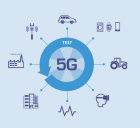
5G will be the new generation of mobile connectivity. The connection will be faster and more reliable, and will bring previously unknown possibilities for citizens and business. Amsterdam is exploring the opportunities and obstacles on the road to a safe and useful 5G network. One of the ways we do this is with our field lab in Amsterdam South East, from the train station to the Johan Cruijff ArenA. But also through regional, national and international collaborations.
Amsterdam Data Exchange (AMDEX)

If data is the new gold, how can we ensure that we can all benefit from the possibilities?
Read the report about the principles of AMDEX (link)
The idea originated during the Science and Business dinner organized by Amsterdam Science Park (ASP). With Science Park’s history in the field of technological innovation and digital connectivity, the Amdex was a logical next step. As argued by Margo Keizer (ASP), "data sharing is already happening here, but at an informal level. We bring all these different initiatives together. To do this, we need to address various infrastructural and legal issues." The Amsterdam Data Exchange is an initiative to do exactly that, she adds.
Wouter Los questions: "how can we work efficiently with all this data?” With his extensive experience in the European scientific community, Los helped in the investigation of the function of the data marketplace. He explains "we want to go to an open, democratic playing field. In this model - in contrast to the monopolistic models that you now come across - the data remains from its owner and they decide which data can be shared with whom and under what conditions. We build a market model in which everyone is able to consult and use data in a transparent, familiar manner."
Chief Technology Officer, Ger Baron mentions, "since 2011, the municipality have had an open data policy. Municipal data is from the community and must therefore be available to everyone, unless privacy is at stake. In recent years we have learned to open up data in different ways.” He adds, “panorama photos, for example, are freely accessible on our data portal. In addition, we share data with market parties to find a parking space. We want to share data, but under the right conditions. This requires a transparent date market which is exactly what the Amsterdam Data Exchange can offer."
The Black Box Bellagio

Welcome to the Black Box Bellagio - an unusual casino that won’t take your money, but is after your freedom, integrity and private data instead. Play with the (un)fairness of expected values, predicted risks, and giving up your identity. Disclaimer: The house always seems to win.
The internet services we think of as free are often paid for with our data: it is the price of access, and is used to determine our treatment and advantages. Our data feeds the algorithms which can unfairly or wrongly categorise, exclude or discriminate against us. The Black Box Bellagio uses the dynamics of a casino to communicate the asymmetry of this relationship. At this casino, like on the internet, your personal data determines the advantages you get, the luck and misfortune you experience, and how much it really costs you to play.
The Black Box Bellagio has been developed by Roos Groothuizen (1992, NL), an Amsterdam/Utrecht-based designer and artist, who cares about digital rights. Fascinated with the unfair distribution of information and how online algorithms systematically discriminate us, her work reflects on in-depth research and recent developments, often with interactive or game-like elements. The Black Box Bellagio has been realized in collaboration with Ymer Marinus and the Waag.
Film documentation from De Nieuwe Anita (May 2018), by Jimena Gauna for Waag:
The Black Box Bellagio at de Nieuwe Anita / Aftermovie
This project has received funding from the European Union’s Horizon 2020 research and innovation programme under grant agreement No. 732546. The Black Box Bellagio is organised as part of DECODE, a project developed by 14 European partners. Through this casino DECODE aims to engage a new group of people in conversations about personal data, privacy and data commons.
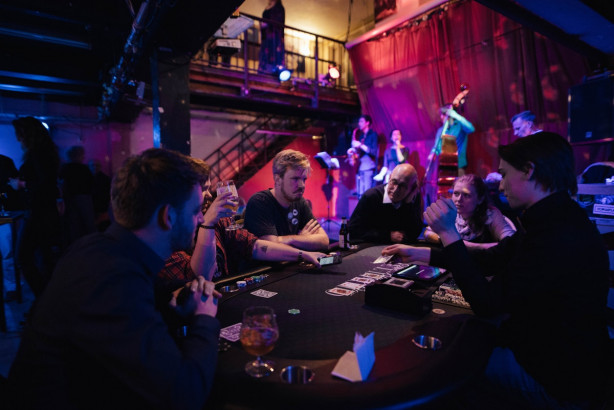
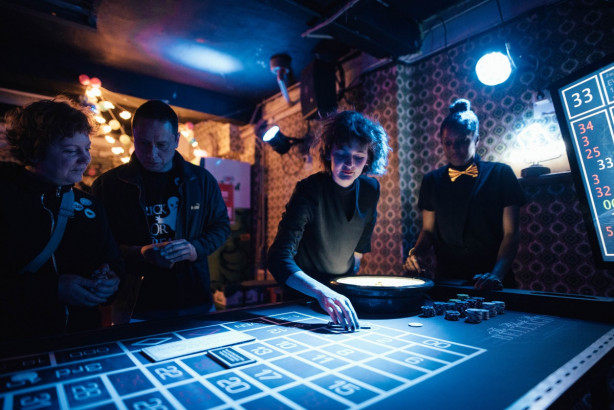
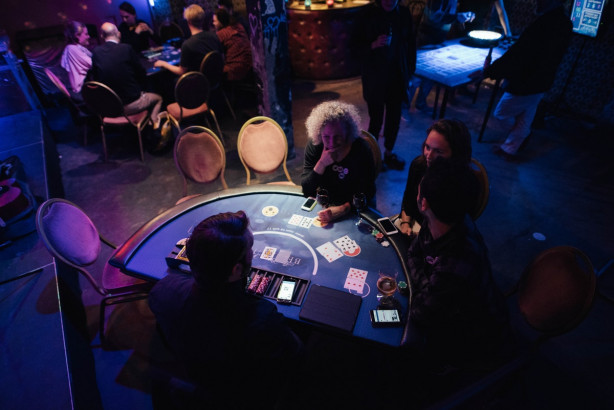
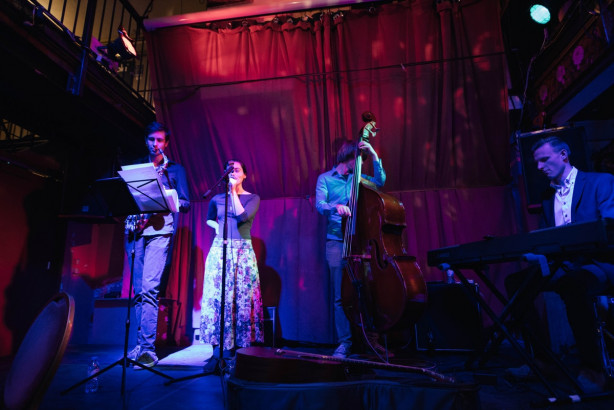
Pictures by Jimena Gauna for Waag
More picture and information: Click here
TechConnect

As part of the TechConnect action programme, a number of initiatives are being launched to increase equal opportunities in the tech sector by making related study programmes and tech jobs accessible to everyone. In practice, this means that thousands of women, people from disadvantaged neighbourhoods and owners of SMEs will be trained to become coders, data analysts, growth hackers, UX designers or tech administrators.
For more information, visit the website: <https://techconnect.city/>
SmartGrid Optimization
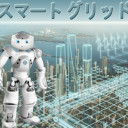
At the University of Amsterdam, in the course of Heuristics, we have a case on SmartGrids. The assignment involves writing algorithms to optimally configure a grid of energy consuming and producing entities.
Houses with solar panels with different outputs must be linked to batteries, all placed on a grid, with minimal wiring cost. In a later stage, alternative locations for batteries might also be obtained.
Check out the case on heuristieken.nl.
DECODE
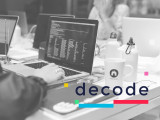
DECODE is an EU funded project to make tools that put people in control of whether they keep their personal information private or share it for the public good.
This project has received funding from the European Union’s Horizon
2020 research and innovation programme under grant agreement No. 732546.
Amsterdam Tech City => Global Tech City
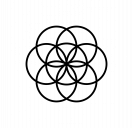
An innovative and intuitive platform made for streamlining and forging meaningful connections between like-minded, influential, and invested partners in order to efficiently make real progress towards achieving the United Nations’ 17 Sustainable Development Goals for a better world.
Stay up to date
Get notified about new updates, opportunities or events that match your interests.

